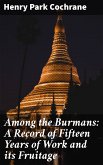In "Lord Milner's Work in South Africa," W. Basil Worsfold provides an exhaustive exploration of the policies and practices implemented by Lord Alfred Milner during his tenure as Governor of the Transvaal and High Commissioner for South Africa. Worsfold's meticulous research reveals the complexity of Milner's governance amid the socio-political upheavals following the Boer War. Written in a clear and engaging style, the book captures the intricacies of colonial administration and the challenges of nation-building in a diverse society, while placing Milner's efforts within the broader context of British imperial policy at the turn of the 20th century. Worsfold, a prominent historian and journalist of his time, was deeply interested in the British Empire's impact on global geopolitics. His own experiences in South Africa informed his analysis, as he sought to illuminate the deliberate and sometimes controversial methods used by Milner to achieve his objectives, often at the expense of local autonomy. This background highlights Worsfold'Äôs keen insight into the nuances of colonial dynamics and governance. This book is essential for those seeking to understand the legacy of British imperialism in South Africa and the complexities of governance during a turbulent period. Worsfold'Äôs detailed narrative, combined with his analytical perspective, makes it a valuable resource for scholars, students, and general readers interested in the colonial history of South Africa.
Dieser Download kann aus rechtlichen Gründen nur mit Rechnungsadresse in A, B, BG, CY, CZ, D, DK, EW, E, FIN, F, GR, H, IRL, I, LT, L, LR, M, NL, PL, P, R, S, SLO, SK ausgeliefert werden.









